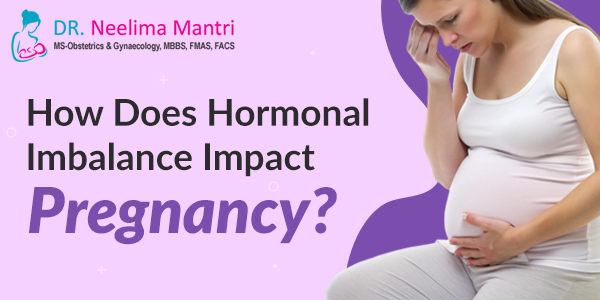Pregnancy depends on balance. Hormones control how your body prepares, supports, and maintains a healthy pregnancy. When those hormones shift too much or too little, problems can occur. Some are mild. Some may need medical attention. Understanding the role of hormones is the first step.
Why Hormones Matter in Pregnancy
Hormones send signals to your body. They prepare the uterus, support the embryo, and help the baby grow. They also help your body change over time to carry the pregnancy to full term. When hormone levels are off, this balance is affected. It can lead to delayed conception, pregnancy complications, or issues with development. Early diagnosis helps manage these problems.
What Hormones Affect Pregnancy the Most?
Several key hormones play a role.
- Progesterone supports the uterine lining and keeps the pregnancy stable. Low levels may lead to spotting or miscarriage risk.
- Oestrogen helps with blood flow and supports the baby’s organs. A sudden drop in oestrogen can affect foetal development.
- hCG (Human Chorionic Gonadotropin) rises early in pregnancy. It signals the body to keep producing progesterone.
- Thyroid hormones support metabolism. If they are too high or too low, they can harm both mother and baby.
- Prolactin prepares your body for breastfeeding. An imbalance here may not affect pregnancy directly, but could impact postpartum recovery.
These hormones work together. One imbalance can trigger issues across the system.
What Are the Signs of Hormonal Imbalance During Pregnancy?
Symptoms may vary. Some are easy to miss. Some overlap with normal pregnancy changes. But the key is to know what is not typical.
- Constant fatigue beyond early pregnancy
- Mood swings that do not improve
- Excessive weight gain or loss without change in diet
- Severe acne or hair loss
- Irregular spotting or cramping
- Low energy despite rest
If you are asking, what are the signs of hormonal imbalance during pregnancy?, these are the red flags. Speak to your gynaecologist if they persist or increase.
When Should You Test Hormones for Pregnancy?
Testing depends on your history and symptoms. If you have had fertility issues, irregular periods, or past miscarriages, early testing is advised. In some cases, hormonal tests are done during pre-pregnancy planning.
How a Gynaecologist Helps Manage Hormonal Imbalance
Gynaecologists monitor changes. They decide what needs treatment and what does not. They may suggest hormone supplements, lifestyle changes, or further scans. Early care makes a big difference in outcomes.
The best gynaecologist for hormonal issues in Mumbai will use updated tests, read results in detail, and explain them in simple terms. If you prefer a woman doctor, the best female gynaecologist in Mumbai will offer a more comfortable space for discussion. When choosing care, always check experience with hormonal cases. The best gynaecologist in Mumbai will be able to handle both mild and complex pregnancy concerns without delay.
Takeaway: Track, Test, and Talk Early
Hormonal imbalance is not rare. But it is manageable. If you notice changes that feel unusual, speak to a doctor early. Hormones shift naturally during pregnancy. What matters is how well your body adapts. With the right support, that balance can be restored.



